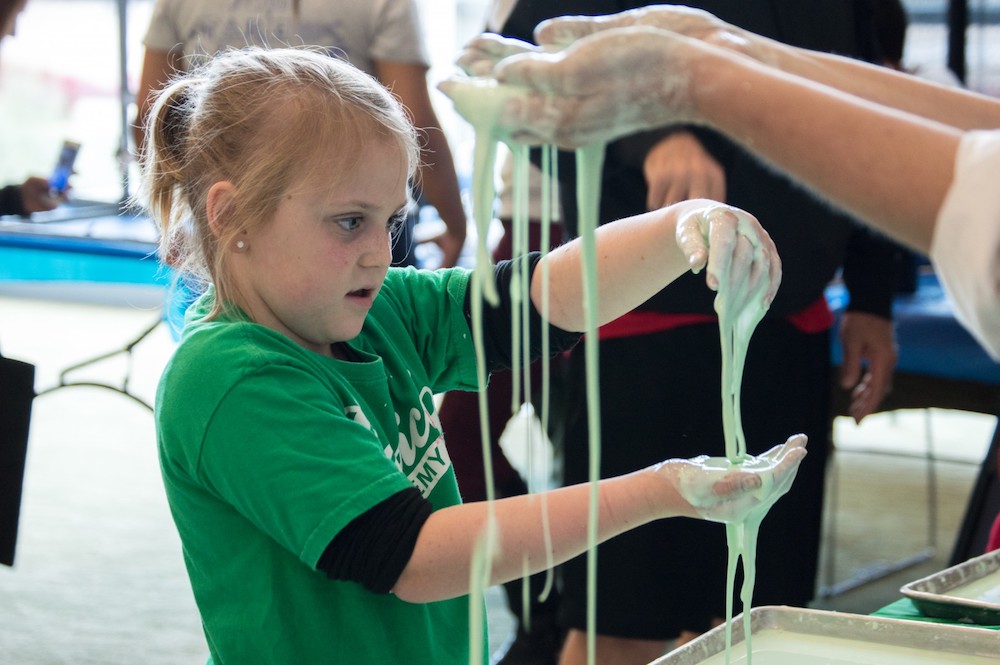Daily Business Report: Friday, Oct. 21, 2022
UC San Diego business stimulator targets
startups in underrepresented communities
New Talent Foundry will nurture and advocate for
aspiring entrepreneurs from diverse communities
By Debra Bass
A newly established business incubator created by UC San Diego’s Office of Innovation and Commercialization is now accepting applications. Funded by a nearly $1 million U.S. Department of Commerce grant and focused on aspiring entrepreneurs from underserved communities, the Talent Foundry aims to nurture successful technology startups by establishing a strong network of support for new business owners within historically disenfranchised communities.
The program, established under the U.S. Build to Scale Program, is meant to fortify regional economies through scalable startups funded by the U.S. Economic Development Administration’s Venture Challenge and Capital Challenge.
“If you’re an entrepreneur, everything is overwhelming without a network of support,” explained David Favela, director of the Talent Foundry. “No one knows everything and that’s where people in communities with easy access to other entrepreneurs and advisers have an advantage. Great advice from people with relevant experience is priceless.”
Favela and his team, including the Talent Foundry’s new program manager Christiana Russell, founder and chief operating officer of We Tha Plug, will lead partnerships between UC San Diego, biotech and life science corporate partners with the help of mission-driven capital investors and business educators.
We Tha Plug works with early-stage Pan-African and Latinx founders and startup companies from ideation to the pre-seed phase. Russell’s We Tha Plug organization is a global community of underrepresented founders, venture capitalists and angel investors in the startup, tech and innovation space.
Top Photo: David Favela stands in front of UC San Diego at Park and Market. (Credit: UC San Diego)
General Atomics announces plans for fusion pilot plant
General Atomics (GA) announced a new concept for a fusion pilot plant (FPP) to deliver clean, safe, and economically viable fusion energy.
GA’s FPP concept utilizes a steady-state, compact advanced tokamak design approach, where the fusion plasma is maintained for long periods of time to maximize efficiency, reduce maintenance costs, and increase the lifetime of the facility. To learn more about the concept, visit: www.ga.com/fusion-pilot-plant.
“Excitement for fusion energy is at an all-time high, with historic interest from private industry and government,”said Dr. Anantha Krishnan, senior vice president of the General Atomics Energy Group. “We look forward to working with our partners to make our vision for economic fusion energy a reality. Now is the time for fusion, and General Atomics plans to lead the way.”
Fusion is the process that powers the stars and offers the potential for nearly limitless clean energy. It occurs when two light nuclei combine to form a new one, releasing vast amounts of energy. Researchers can achieve fusion using a “tokamak,” which uses heat and electromagnets to create the necessary heat and pressure to force the nuclei to fuse.
Viasat and Inmarsat receive approval for combination
from Australia’s Foreign Investment Review Board
Carlsbad-based Viasat Inc. a global communications company, and Inmarsat, a leading provider of global mobile satellite communications services, announced that the Australian Government’s Foreign Investment Review Board (FIRB) has confirmed it has no objections to the planned combination of their businesses. FIRB’s clearance of Viasat’s proposed acquisition of Inmarsat under the Foreign Acquisitions and Takeovers Act 1975 is the latest approval for the transaction. Australia is an important market in which the companies have significant business and customer relationships.
The proposed transaction has already secured several key regulatory approvals, most recently with the UK Government’s clearance of the proposed transaction under the National Security and Investment Act, and over the summer from the Committee on Foreign Investment in the United States.
Rajeev Suri, Inmarsat CEO, added: “Approval by Australia’s Foreign Investment Review Board is a welcome further endorsement of the sound competitive logic behind the transaction,” said Inmarset CEO Rajeev Suri.
New Zealand transport agency selects Cubic
Waka Kotahi New Zealand Transport Agency (NZTA)announced its selection of Cubic Transportation Systems (CTS) to provide a National Ticketing Solution for Aotearoa New Zealand. This approach to public transport ticketing is one of the first global models, and when completed, it will cover 13 regions across New Zealand and enable seamless travel on bus, rail and ferry services. The NTS will make public transport a more convenient, reliable and cost-effective choice for riders, encouraging Kiwis to use bus, rail and ferry options more often.
“This is an exciting project for Cubic,” said Cubic Transportation Systems President Jeff Lowinger. “We’re proud that Waka Kotahi chose to leverage our innovative products and proven track record in delivering complex solutions for the world leaders in public transportation, including New York, San Francisco, Chicago, Queensland and London.”
Salk Institute to lead $126 million
effort to map the aging human brain
With a five-year, $126 million grant from the National Institutes of Health (NIH), a team led by Salk Institute scientists has launched a new Center for Multiomic Human Brain Cell Atlas. Part of the NIH’s Brain Research Through Advancing Innovative Neurotechnologies (BRAIN) Initiative, the project aims to describe the cells that make up the human brain in unprecedented molecular detail, classify brain cells into more precise subtypes, and pinpoint the location of each cell in the brain. What’s more, the team will track how these features change from early to late life.
MiraCosta College receives grant to support
students pursuing stem cell careers
MiraCosta College has received a state grant of almost $2.9 million that will be used to offer internships, mentoring, and financial support to encourage students to pursue careers in stem cell research and manufacturing. The college was one of 16 California public colleges and universities that received grants totaling $46 million from the California Institute for Regenerative Medicine, the state’s stem cell agency that was created in 2004 following passage of a $3 billion bond measure to encourage stem cell research. Students will be placed in internships, partner with a mentor working in the stem cell industry, and receive financial support. Students who are working toward a bachelor’s degree in biomanufacturing at MiraCosta College will be eligible to participate in the program.
Koji announces ‘Exclusive Article’ app
Koji, the e-commerce site for social media, announced the launch of Exclusive Article, a new app that allows creators to monetize written content and articles by locking it behind a paywall. Exclusive Article offers lets anyone lock written content that followers have to pay to unlock. The app offers support for robust formatting, images, and URL linking all within the app. Creators can write and edit content in Exclusive Article—blog posts, articles, recipes, etc—from anywhere on the web. Followers can then seamlessly preview and purchase the premium content directly from the creator’s Link in Bio. The new app is free to use.
Jake Dinnen promoted to executive VP at PMB
PMB, a San Diego health care real estate developer, announced the promotion of Jake Dinnen to partner, executive vice president, development.
Dinnen will continue to be a driver of PMB’s evolution and growth by focusing on building client relationships, leading development projects, and supporting the overall strategy and execution of PMB.
Dinnen joined PMB in 2018 as senior vice president, development.
His 20+-year career has been focused solely on health care real estate development where he has been responsible for the development, leasing, project management and acquisition of more than 3.5 million square feet of medical office properties in over 15 states.
Kim Raineri joins Aspen Neuroscience as CTO
Aspen Neuroscience Inc., a San Diego private biotechnology company developing the first autologous neuron replacement therapies to treat Parkinson’s disease, has hired Kim Raineri as chief technology officer and as a member of the company’s executive team.
He brings over 25 years of global experience in the cell and gene therapy, biologics and medical device spaces, with a distinguished record of innovation and implementation of Good Manufacturing Practices (GMP).
Aspen Neuroscience has been building out its technical operations and team, and Raineri will be responsible for developing the strategy for and execution of the company’s in-house manufacture of its autologous cell therapy portfolio.
Gina Grayum joins Juno Diagnostics leadership team
Juno Diagnostics, a San Diego company focused on bringing vital health information to patients by improving access, affordability and transparency, announced the addition of Gina Grayum to its commercial leadership team.
Grayum brings more than a decade of diagnostics sales and management experience to JunoDx, most recently as U.S. sales director, women’s health for Invitae Corporation.
At Invitae, she was responsible for leading the sales organization, overseeing over 100 sales employees, and driving cross-functional performance across marketing, training, commercial operations and client services.
Groundbreaking today for restoration project
A groundbreakingceremony will be held at 9 a.m. today to celebrate the start of construction of the Otay River Estuary Restoration Project, a partnership between Poseidon Resources (Channelside) LP and the U.S. Fish and Wildlife Service to create, restore and enhance 125 acres of coastal wetland habitat in the San Diego Bay National Wildlife Refuge. The event will be hosted by Poseidon Resources, the U.S. Fish and Wildlife Service, and the Friends of San Diego Wildlife Refuges, in coordination with the San Diego County Water Authority.
Illumina launches research collaboration with AstraZeneca
Illumina Inc., a global leader in DNA sequencing and array-based technologies, announced a strategic research collaboration with AstraZeneca, a global, science-led biopharmaceutical company, to accelerate drug target discovery by combining their strengths in artificial intelligence (AI) based genome interpretation and genomic analysis techniques along with industry expertise. The collaboration will evaluate whether a combined framework of these technologies can increase the yield and confidence of target discovery to find promising drugs based on human omics insights.
Rady Children’s Hospital develops digital imaging software
Rady Children’s Hospital–San Diego, a national leader in pediatric health care, announced the availability of Media2DICOM, its cutting-edge Digital Imaging and Communications in Medicine (DICOM) standardization software. Created in-house at the hospital’s Helen and Will Webster Foundation 3D Innovations (3DI) Lab, this freely available software is the first ever tool of its kind. The development of the software was made possible thanks to a generous gift from the Helen and Will Webster Foundation. Read more








